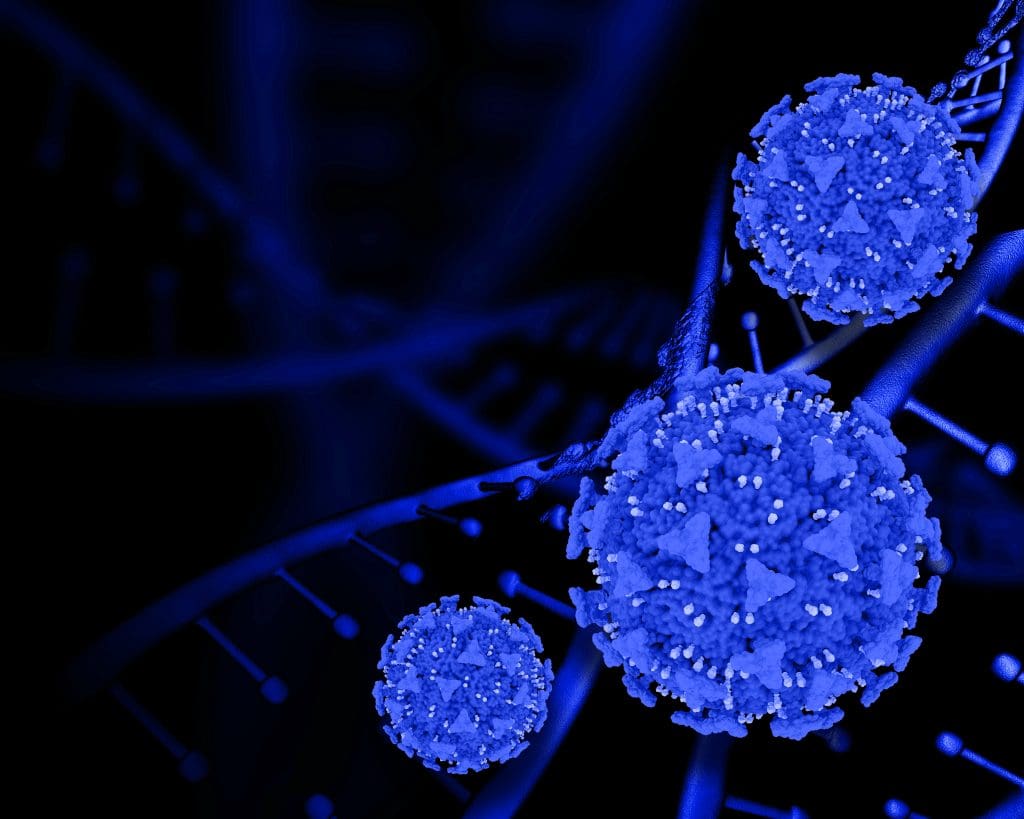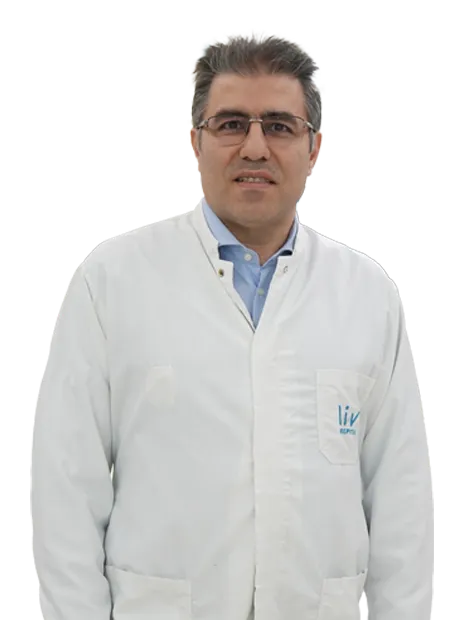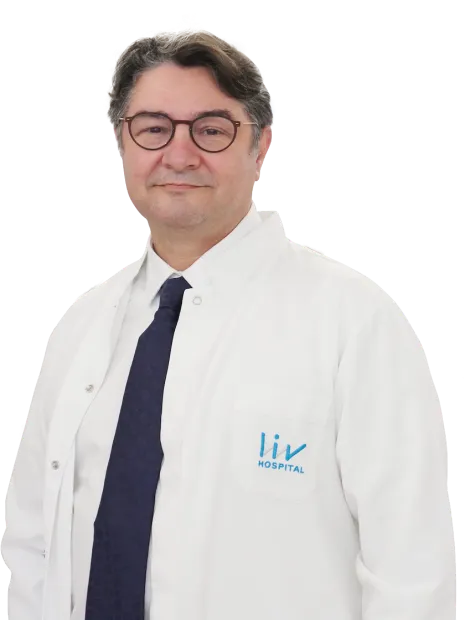Research on stem cell regeneration is moving forward. Now, people are looking at how diet helps this process. Certain foods may support the body’s natural repair processes, enhancing overall health.
Key Takeaways
- Understanding the link between diet and stem cell health
- Exploring foods that support regenerative medicine
- The benefits of stem cell regeneration through diet
- Insights into the growing stem cell therapy market
- The role of nutrition in stem cell therapy
Understanding Stem Cells and Their Importance

Stem cells are key to keeping us healthy and helping our bodies fix themselves. They can turn into different types of cells. This is important for growth, fixing tissues, and making new ones.
What Are Stem Cells?
Stem cells can make copies of themselves and turn into many cell types. This makes them very important for our bodies. Stem cell research shows they could help a lot in medicine, like in fixing damaged tissues.
The Role of Stem Cells in Human Health
Stem cells are vital for our health. They help our bodies grow and fix themselves. By studying them, we learn more about how to keep our bodies healthy and fix problems.
Types of Stem Cells in the Body
There are many kinds of stem cells in us. Each has its own job and abilities. Here are a few:
- Embryonic stem cells can turn into any cell type.
- Adult stem cells can turn into a few types of cells.
- Induced pluripotent stem cells (iPSCs) are made from adult cells and can turn into many cell types.
Knowing about these stem cells helps us improve stem cell technology for medicine.
The Connection Between Diet and Stem Cell Function
Learning how diet impacts stem cell function can help us understand how to boost regenerative health. Recent studies show that nutrition is key for stem cell regeneration and overall health.
Nutritional Influence on Stem Cell Production
Nutrients in our diet affect stem cell production. Eating foods rich in essential nutrients helps support regenerative cell therapy. This is because these nutrients are the building blocks for stem cell activity.
Vitamins, minerals, and antioxidants are important for stem cell health. They keep stem cells healthy and functioning well. This supports cell therapy and regenerative processes.
Dietary Factors Supporting Stem Cell Health
Some foods are better for stem cell health than others. Foods high in antioxidants, like berries and leafy greens, protect stem cells from damage.
- Antioxidant-rich foods
- Omega-3 fatty acids found in fatty fish
- Nuts and seeds rich in healthy fats and antioxidants
The Science Behind Food-Induced Stem Cell Activation
Scientists are studying how food affects stem cell activation. They look at how specific nutrients and diets impact stem cell function. This research aims to find out how diet can support stem cell regeneration and improve regenerative health.
By learning about diet and stem cell function, we can make better food choices. This can help support our health and boost our body’s natural ability to heal.
Berries and Fruits That Promote Stem Cell Health
Eating a variety of berries and fruits can really help your stem cells. These foods are full of antioxidants, vitamins, and minerals. They help your cells grow back and keep you healthy.
Blueberries and Their Antioxidant Properties
Blueberries are packed with antioxidants. These help protect your stem cells from damage. The special compounds in blueberries keep your stem cells working well.
“The antioxidant power of blueberries is among the highest in fruits. They’re great for keeping stem cells healthy.” Blueberries fight off stress that can harm stem cells. This is key for fixing and growing tissues.
Strawberries, Raspberries, and Other Berries
Strawberries and raspberries are also full of good stuff for your stem cells. Strawberries have lots of vitamin C, which helps your tissues stay strong. Raspberries have ellagic acid, which fights inflammation and helps your stem cells work better.
- Strawberries: Rich in vitamin C, supporting collagen production and tissue health.
- Raspberries: Contain ellagic acid, which has anti-inflammatory properties.
- Other berries like cranberries and blackberries also offer antioxidant benefits.
Citrus Fruits and Vitamin C’s Role in Stem Cell Health
Citrus fruits like oranges, lemons, and grapefruits are full of vitamin C. Vitamin C is key for making collagen, which keeps tissues strong. It also protects stem cells from harm, helping them grow and keep you healthy.
“Vitamin C is vital for stem cells. It keeps the cell environment healthy.”
Eating these fruits can help your body fix itself and stay healthy.
Green Vegetables and Their Stem Cell-Boosting Compounds
Green vegetables are full of compounds that help with stem cell regeneration and health. They have many nutrients and phytochemicals. These help improve stem cell function, leading to better tissue repair and cell rejuvenation.
Broccoli, Kale, and Cruciferous Vegetables
Cruciferous veggies like broccoli and kale are great for stem cell health. They have sulforaphane, a compound studied for regenerative medicine.
Spinach and Leafy Greens
Spinach and leafy greens are full of nutrients for stem cell health. They have antioxidants and other good compounds that protect stem cells. Eating a variety of leafy greens can boost your health and well-being.
Fatty Fish and Omega-3s for Stem Cell Support
Fatty fish are a great source of omega-3 fatty acids. These are key for keeping stem cells healthy and supporting cellular regeneration. Omega-3s help in many ways, like reducing inflammation and improving cell function.
Salmon, Mackerel, and Other Rich Sources
Fatty fish like salmon, mackerel, and sardines are packed with omega-3s. These are important for stem cell health. Eating different types of fatty fish helps you get enough of these essential fats.
How Omega-3 Fatty Acids Influence Stem Cell Function
Omega-3s help stem cells work better by fighting inflammation. This creates a better environment for cells. Studies show they help stem cells grow and change, which is vital for fixing and growing tissues.
Recommended Intake for Optimal Benefits
Eating fatty fish at least twice a week is best for omega-3 benefits. If you can’t eat enough, supplements might help. But, always talk to a doctor first. They can help you find the right balance of omega-3s for regenerative cell therapy and health.
Nuts, Seeds, and Plant-Based Proteins
Eating nuts, seeds, and plant-based proteins can help your body heal and grow. These foods are packed with nutrients and antioxidants. They boost stem cell function and improve your overall health.
Walnuts and Their Unique Nutritional Profile
Walnuts stand out because they’re full of alpha-linolenic acid (ALA), an omega-3 fatty acid. This supports heart health and helps stem cells. Walnuts also have antioxidants and fiber, which aid in healing and growth.
Flaxseeds, Chia Seeds, And Hemp Seeds
Flaxseeds, chia seeds, and hemp seeds are great for stem cell health. They’re rich in omega-3s and fiber. These seeds also have antioxidants and other nutrients that help with healing.
Plant Proteins That Support Cellular Regeneration
Plant proteins, like those in legumes and beans, are key for cell growth. They provide amino acids needed for regeneration. Adding these proteins to meals boosts nutrition and taste. Focusing on plant proteins supports health and natural healing.
Choosing the right foods, like nuts, seeds, and plant proteins, is key. It helps support stem cell health and healing. This approach to eating is important for staying healthy and feeling good.
The Science Of Stem Cell Regeneration Through Nutrition
Nutrition and stem cell health are closely linked, with research showing their importance. Scientists are learning how diet affects stem cells. This knowledge could lead to new ways to heal damaged tissues.
Current Research And Clinical Studies
Studies are uncovering how certain foods help stem cells work better. For example, some foods can make stem cells grow and change into different types of cells. Clinical trials are now underway to explore the therapeutic potentials of nutritional interventions in promoting stem cell health.
A study in the journal Nature found that diet can greatly affect stem cell function. It suggests new ways to treat diseases.
“Dietary factors play a critical role in regulating stem cell activity. Modulating these factors could lead to new ways to repair and regenerate tissues.”
This growing interest in nutritional stem cell biology is exciting.
Mechanisms Of Action
Nutrition affects stem cell regeneration in many ways. Some nutrients help by changing how cells talk to each other, protecting them from damage, and supporting their environment. For instance, omega-3 fatty acids in fish can help stem cells by reducing inflammation and making cells stronger.
- Modulation of signaling pathways critical for stem cell maintenance and function
- Antioxidant effects that protect stem cells from oxidative damage
- Support for the stem cell niche, ensuring a conducive environment for stem cell activity
Limitations Of Current Knowledge
While research is promising, there’s much we don’t know yet. More studies are needed to understand how diet affects stem cells. Also, turning research into treatments for people is a big challenge.
Dr. [Researcher’s Name] says, “We’ve made good progress in understanding nutrition’s role in stem cell health. But, we need more research to fully use dietary interventions in regenerative medicine.” This shows the need for more scientific study in this area.
Herbs And Spices That Enhance Stem Cell Function
Adding certain herbs and spices to your diet can boost stem cell health. These natural ingredients have anti-inflammatory and antioxidant properties. They help with stem cell regeneration and overall health.
Turmeric And Curcumin
Turmeric is a spice with curcumin, which fights inflammation and protects cells. Research shows curcumin boosts stem cell function by helping cells grow and reducing damage. Adding turmeric to your meals, like in curries or teas, supports stem cell health.
Ginger And Its Anti-inflammatory Properties
Ginger is famous for its anti-inflammatory effects, helping stem cells stay healthy. Ginger’s active parts help the body fix itself better. Drinking ginger tea or adding it to food can be a great way to use its benefits.
Other Beneficial Herbs And Spices
Other herbs and spices also support stem cell health. These include:
- Cinnamon, which fights inflammation.
- Rosemary, packed with antioxidants.
- Garlic, which may help cells grow.
The Gut-Stem Cell Connection
The gut and stem cells have a complex relationship. A healthy gut supports stem cell activity. Stem cells also help keep the gut healthy by repairing tissues.
This shows how important a balanced gut microbiome is.
Influencing Regenerative Processes
The health of the microbiome affects how well the body regenerates. The gut microbiome makes substances that influence stem cells. This affects how stem cells grow, change, and survive.
Eating fermented foods and keeping the gut healthy can help the body regenerate naturally. This, along with other healthy habits, can improve overall health. It can also make cell therapy and other regenerative medicine more effective.
Teas and Beverages For Stem Cell Support
Teas and beverages offer many options to boost stem cell function and aid in healing. They play a key role in supporting our body’s natural healing processes. This is important as we look into how diet affects stem cell health.
Green Tea And EGCG
Green tea is famous for its antioxidants, like EGCG. EGCG helps protect stem cells from damage and may improve their function.
Studies show green tea’s antioxidants help create a better environment for stem cells. Dr. [Researcher’s Name] says, “Green tea’s EGCG keeps stem cells healthy, which can lead to better healing.”
Other Beneficial Teas And Infusions
Other herbal teas and infusions also support stem cell health. For example:
- Turmeric tea, with curcumin, has anti-inflammatory effects good for stem cells.
- Ginger tea, rich in antioxidants, may improve cell health.
- Rooibos tea, without caffeine, has antioxidants and supports well-being.
These drinks, part of a balanced diet, help create a supportive environment for stem cell health and healing.
Beverages to Avoid for Stem Cell Health
Some teas and drinks can harm stem cells. It’s important to limit or avoid:
- Sugary drinks cause inflammation and oxidative stress.
- Too much caffeine can harm stem cell function.
- Alcohol can damage stem cells and slow healing.
Choosing the right drinks helps support stem cell health and overall well-being.
Creating A Stem Cell-Friendly Diet Plan
To help stem cells, eat a diet full of nutrients. A balanced diet with whole foods is key. It boosts stem cell health and regeneration.
Daily Meal Suggestions
Adding stem cell-supporting foods to your meals is easy. Begin with a breakfast of berries and leafy greens. They’re packed with antioxidants and good stuff.
For lunch, try a salad with fatty fish like salmon. It’s full of omega-3s that are great for stem cells. Add walnuts or other nuts for extra healthy fats and antioxidants.
Balancing Nutrients for Optimal Results
A good diet for stem cells needs the right mix of nutrients. Make sure to eat proteins, healthy fats, and complex carbs. This supports your health and stem cell function.
“A well-balanced diet is the foundation of stem cell health, providing the necessary building blocks for regeneration.”
Sample Weekly Menu
Here’s a weekly menu with foods that support stem cells:
- Monday: Oatmeal with blueberries and walnuts for breakfast; grilled salmon with spinach for lunch.
- Tuesday: Smoothie bowl with strawberries, chia seeds, and almond milk for breakfast; turkey and avocado wrap for lunch.
- Wednesday: Scrambled eggs with kale for breakfast; quinoa and black bean salad for lunch.
Stick to this diet and eat a variety of nutrient-rich foods. It helps with stem cell regeneration and keeps you healthy.
Combining Diet With Other Stem Cell-Supporting Practices
Eating well is key to keeping stem cells healthy. But, other parts of our life also matter a lot. They help keep stem cells working right.
Exercise and Physical Activity
Working out is good for stem cells. It makes our body release special helpers for stem cells. This helps them move and change into different types of cells.
Types of Exercise Beneficial for Stem Cells:
- Aerobic exercises like running or cycling
- Resistance training for muscle strength
- Flexibility and balance exercises like yoga
Stress Management and Sleep
Too much stress and not enough sleep can hurt stem cells. Ways to handle stress include meditation and deep breathing. Also, sleep is key for our health, including stem cells.
Tips for Better Stress Management and Sleep:
- Practice relaxation techniques daily
- Maintain a consistent sleep schedule
- Create a sleep-conducive environment
Environmental Factors to Consider
Things around us can affect stem cells too. It’s good to stay away from harmful chemicals and too much sun. This helps keep stem cells healthy.
Ways to Minimize Environmental Stressors:
- Use protective gear when working with chemicals
- Avoid heavily polluted areas
- Use sunscreen and protective clothing when outdoors
By eating right, exercising, managing stress, sleeping well, and avoiding bad stuff in the environment, we can support our stem cells. This helps us stay healthy overall.
Potential Risks and Considerations
Exploring the link between diet and stem cell health is important. We must be aware of the risks and considerations. Dietary changes can help stem cell health, but they need careful planning. This is true for people with health issues or those getting stem cell therapy.
When to Consult Healthcare Professionals
Before making big diet changes, talk to a healthcare professional. This is key if you’re looking to boost regenerative cell therapy. They can give advice tailored to your health, medications, and other factors.
Healthcare experts can also watch your progress and tweak your diet as needed. This is vital for people with ongoing health issues or those on medications. These can affect how well certain foods or supplements work.
Interactions With Medications
Diet changes can sometimes affect how well medications work. For example, some foods can mess with blood thinners or diabetes meds. It’s critical to know about these interactions, even if you’re getting stem cell therapy or using medical technology.
- Know which foods can affect your meds.
- Talk to your doctor about diet changes.
- Watch your health closely when trying new foods or supplements.
Individual Variations in Response
People react differently to the same diet changes. Your genes, health, and lifestyle play a big role. This is why getting personalized advice from healthcare pros is so important.
Understanding these risks helps you make smart choices about diet and stem cell health. This can improve the effects of regenerative cell therapy and other medical technology treatments.
Conclusion: Optimizing Your Diet for Stem Cell Health
Improving your diet is key to boosting stem cell health. This supports your overall well-being and helps with regeneration. Eating foods that are good for stem cells can make a big difference.
A diet full of antioxidants and omega-3 fatty acids is great for your cells. Foods like berries, green veggies, fatty fish, nuts, and seeds are all good. They help your body regenerate and rejuvenate.
Choosing the right foods and adding exercise and stress management can help a lot. This approach supports your stem cells and helps your body heal naturally. It’s a way to take care of your health from the inside out.
FAQ
What Are Stem Cells, And Why Are They Important For Our Health?
Stem cells can turn into different cell types. They help keep tissues healthy, fix damaged ones, and support our overall health. They are key for our body’s natural repair processes.
How Does Diet Affect Stem Cell Function And Regeneration?
What we eat greatly affects our stem cells. Certain foods and diets can help them work better. Eating a balanced diet with fruits, veggies, whole grains, and lean proteins is good for them.
Which Foods Are Rich In Antioxidants And Support Stem Cell Health?
Foods like berries, leafy greens, citrus fruits, and nuts are full of antioxidants. They help keep stem cells healthy.
Can Omega-3 Fatty Acids Support Stem Cell Health?
Yes, omega-3s in fatty fish like salmon and mackerel help stem cells. They reduce inflammation and help cells grow back.
How Do Fermented Foods And Gut Health Impact Stem Cells?
Fermented foods like yogurt and kefir have probiotics. They help our gut health, which is linked to stem cell function. A healthy gut is key for stem cell health.
Are There Any Beverages That Can Support Stem Cell Health?
Yes, green tea is good for stem cells. It has EGCG that reduces stress and helps cells grow. Herbal teas and infusions are also beneficial.
Can A Stem Cell-Friendly Diet Plan Be Tailored To Individual Needs?
Yes, a diet plan can be made just for you. It considers your nutritional needs, health, and lifestyle. A healthcare professional or dietitian can help make a plan that fits you.
Are There Any Potentially Harmful Effects Of Using Dietary Interventions For Stem Cell Health?
Yes, how you react to certain foods and diets can vary. They might interact with medicines or worsen health conditions. Always talk to a healthcare professional before starting any new diet.
How Can I Combine A Stem Cell-Friendly Diet With Other Lifestyle Practices To Support Stem Cell Health?
Eating right is just part of the equation. Regular exercise, managing stress, and getting enough sleep also help. Avoiding toxins and keeping a healthy weight are important too.
What Is The Current State Of Research On Stem Cell Regeneration Through Nutrition?
Research on how nutrition affects stem cells is ongoing. Scientists are studying how different foods and diets work. More research is needed to fully understand the link between nutrition and stem cell health.




































